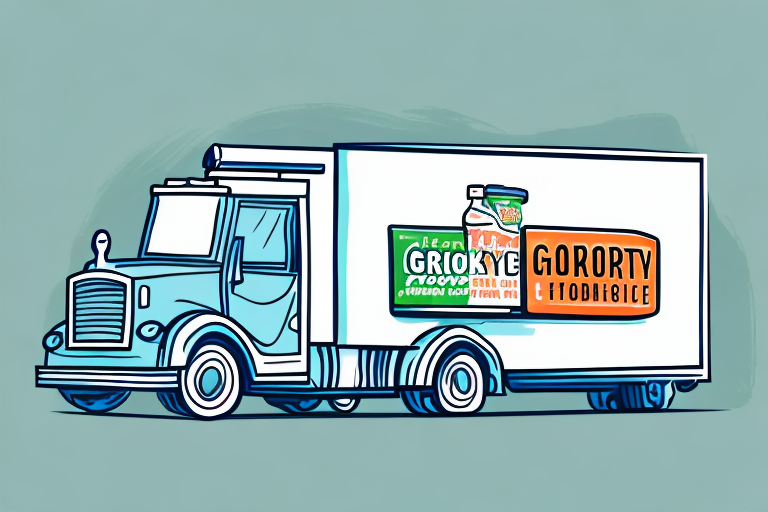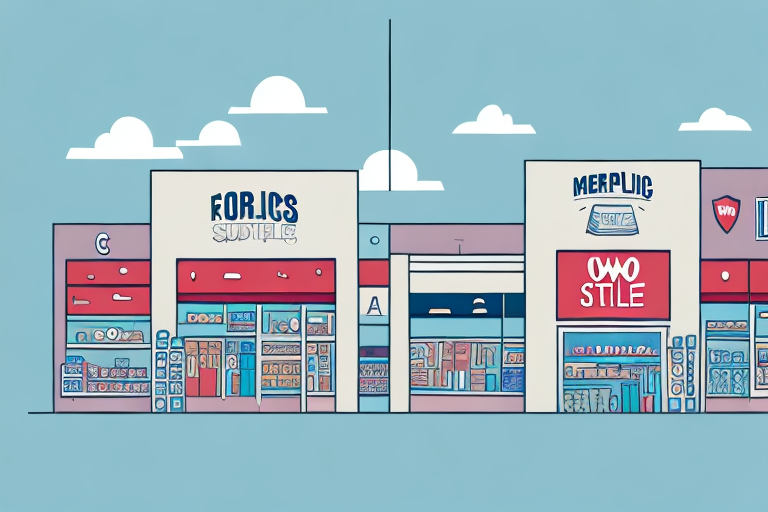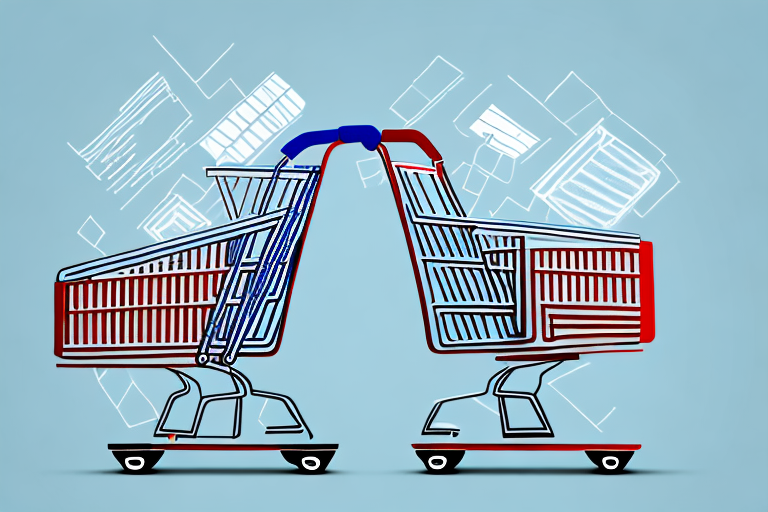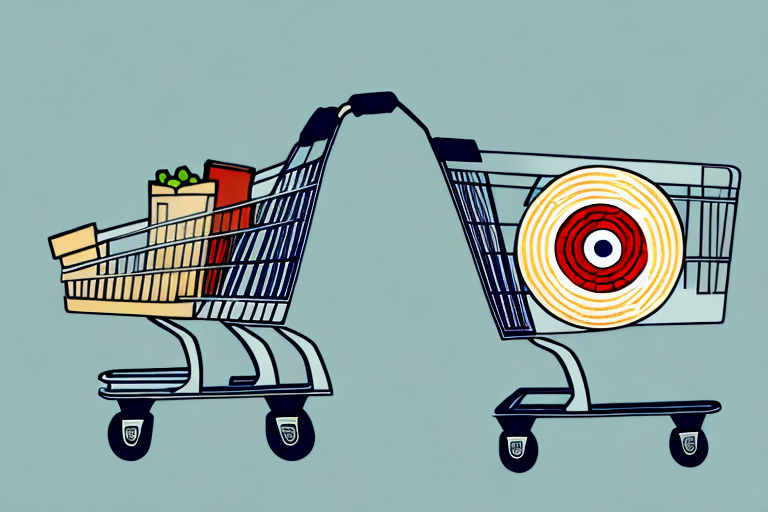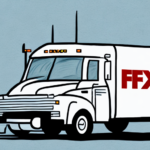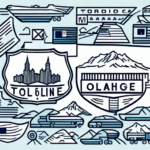Kroger's Strategic Acquisition of a Food Delivery Service: An In-Depth Analysis
Kroger, one of the largest grocery retailers in the United States, has announced its plans to acquire a leading food delivery service. This acquisition marks a significant step in Kroger's efforts to enhance its e-commerce capabilities and meet the evolving demands of today's consumers. In this article, we explore the details of this acquisition, its implications for Kroger, the food delivery market, shareholders, the broader grocery industry, and consumers.
About Kroger: Leading the US Grocery Market
Established in 1883 and headquartered in Cincinnati, Ohio, Kroger has grown to become the largest supermarket chain in the US by revenue. With over 400,000 employees nationwide, Kroger operates supermarkets and multi-department stores across the country, offering a wide range of products and services. Beyond traditional grocery items, Kroger stores feature pharmacies, fuel centers, and robust online grocery ordering and delivery services. Committed to sustainability, Kroger has implemented initiatives aimed at reducing waste and energy consumption in their stores and distribution centers.
Market Position and Revenue
As of 2023, Kroger reported annual revenues exceeding $137 billion, solidifying its position as a retail giant in the grocery sector (National Retail Federation).
Understanding Food Delivery Services
A food delivery service facilitates the ordering of groceries and other household items online, delivering them directly to customers' doorsteps. This model has gained immense popularity due to the convenience and time-saving benefits it offers. Consumers can browse a vast array of products, place orders from the comfort of their homes, and receive deliveries within hours or days, depending on the service.
Growth Trends in Food Delivery
The food delivery market has experienced exponential growth, especially accelerated during the COVID-19 pandemic. According to a McKinsey report, online grocery sales have grown by over 40% since 2019, with continued upward trends expected.
Why Kroger is Acquiring a Food Delivery Service
Kroger's decision to acquire a food delivery service is driven by its strategic focus on expanding e-commerce capabilities. The online grocery market is rapidly growing, and this acquisition allows Kroger to strengthen its position against key competitors by offering enhanced delivery options and a seamless shopping experience.
Enhancing Customer Convenience
By integrating a dedicated food delivery service, Kroger aims to provide faster, more efficient deliveries and expand its coverage area, thereby meeting the increasing consumer demand for quick and reliable online grocery services.
Benefits of the Acquisition for Kroger
The acquisition presents numerous benefits for Kroger, including:
- Expanded Delivery Options: Offering a wider range of online ordering and home delivery services to stay competitive.
- Customer Base Growth: Attracting new customer segments such as busy professionals and elderly customers who prefer home deliveries.
- Operational Efficiency: Streamlining supply chain and logistics to reduce operating costs and improve profitability through optimized delivery routes.
Financial Synergies
Kroger expects to achieve significant cost savings and revenue growth through the integration of the acquired food delivery service. These synergies are projected to enhance overall profitability (Bloomberg).
Competitive Landscape in Food Delivery
Kroger faces competition from major players such as Amazon, Walmart, Instacart, and DoorDash in the food delivery industry. Each of these companies offers robust online grocery ordering and delivery services. However, Kroger's extensive network of physical stores provides a unique advantage, enabling in-store pickup options and localized delivery strategies.
Unique Selling Proposition
Kroger's loyalty program, Kroger Plus, offers personalized discounts and deals, fostering customer retention and attracting new shoppers seeking value.
Impact on the Grocery Industry and Consumers
Kroger's acquisition is poised to significantly impact the broader grocery industry. With enhanced delivery capabilities, Kroger can drive innovation and set new standards for online grocery shopping. Consumers will benefit from more competitive pricing, expanded product offerings, and improved delivery services.
Market Consolidation
As Kroger consolidates its position, other retailers may need to invest more heavily in their own delivery services to remain competitive, potentially leading to market shifts and increased innovation across the sector.
Challenges in Integrating a New Food Delivery Service
Despite the potential benefits, Kroger may encounter several challenges during the integration process, including:
- Logistical Complexities: Coordinating supply chains and delivery logistics between Kroger and the acquired service.
- Technological Integration: Ensuring seamless integration of technology platforms to provide a unified customer experience.
- Market Competition: Differentiating Kroger's services in a saturated market with established players like Uber Eats and Grubhub.
Future of E-commerce in Grocery Retail
This acquisition underscores the growing importance of e-commerce in grocery retail. As consumer preferences continue to evolve towards online shopping and home delivery, companies like Kroger are investing heavily in technology and infrastructure to capitalize on these trends and secure their market position.
Technological Innovations
Advancements in technology, such as artificial intelligence for personalized recommendations and robotics for order fulfillment, are set to drive further growth and efficiency in online grocery services (Harvard Business Review).
Conclusion: Kroger's Path Forward in the Grocery Industry
Kroger's acquisition of a food delivery service demonstrates its commitment to expanding e-commerce capabilities and enhancing the customer experience. By leveraging this acquisition, Kroger is well-positioned to increase market share, drive innovation, and meet the evolving needs of consumers in the digital age. Despite potential integration challenges, the long-term benefits of improved operational efficiency and expanded service offerings are expected to contribute to Kroger's sustained growth and leadership in the grocery industry.















